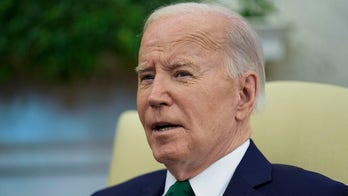All of the jousting, jostling, and jockeying for position on the Bush-era tax cuts, set to expire by year's end, has reached a fevered pitch in the Senate, with one Democratic senator even likening the ongoing struggle with Republicans to "negotiating with terrorists." All of this will reach a climax on Saturday, when members will vote on two Democratic proposals that would essentially allow Bush-era tax cuts to expire for wealthier Americans.
One senior Senate Democratic leadership aide told Fox Friday, "We have to do this to show everyone where we stand. It gets the more liberal members off the cliff's edge, then we can open the door to a compromise. Most Democrats hate the idea of giving in, but it's what we have to do to give the middle class what it needs."
So, as senators defeat, possibly even on a bipartisan basis, both proposals on Saturday, one to extend current income rates for families earning less than $250,000, as well as a number of other key tax breaks, and another to wrap in tax cuts for Americans earning up to $1 million, members can then move toward a compromise. President Obama and Vice President Biden have been negotiating with congressional GOP leaders, talking about agenda priorities, what each must have in a tax cut compromise. It is unclear if this high level group is getting into any granular level of detail, however.
Fox has been told by senior aides involved, including a senior White House official, that the bipartisan, bicameral group meeting in recent days with Treasury Secretary Tim Geithner and Obama's Budget Director Jack Lew, which includes Sens. Max Baucus, D-Mont., and Jon Kyl, R-Ariz, along with Reps. Chris Van Hollen, D-Md., and Dave Camp, R-Mich., is where the actual tax cut compromise will emerge. To date, there have been no substantive compromise points discussed, according to two aides involved, rather the group is waiting for the Senate to dispense with the two Democratic priority votes.
The parameters of a compromise are well known, however - - a temporary extension of the Bush tax cuts (2 or 3 years), an extension of unemployment insurance benefits (duration not clear), some of the tax breaks in the stimulus legislation, and possibly more.
Staff to the negotiators are talking, and it is likely a compromise could materialize fairly quickly, according to staffers involved, though no one expects anything to happen this weekend. What is unclear, however, is how quickly floor debate and final passage could occur.
It is critical that it happen by mid-week, according to GOP aides, to allow for the possible ratification of the New START Treaty with Russia. The Administration has been working overtime to debrief staff and senators, and a number of senior aides in the briefings have told Fox that they have been overwhelmingly impressed, with most, if not all, concerns addressed. One GOP aide said it was one of the most detailed, helpful briefings he has been to in some time. "They are bending over backwards. That is for sure," said the aide.
Most Republicans, led by Sen. Jon Kyl, R-Ariz, have insisted that any approval of the resolution of ratification be preceded by roughly two weeks of debate. Clearly, then, any tax cut debate needs to be abbreviated in order to finish up work on the treaty by the Christmas holiday.




